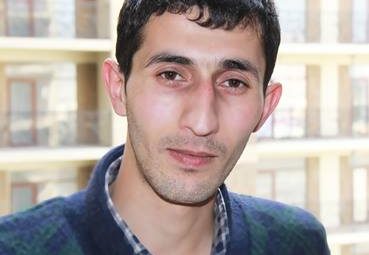Dilara Orynbassarova
Teachers and teachers’ positive attitude are argued as playing a considerable role in implementing the inclusive education successfully. Developing and maintaining a positive teacher attitude towards inclusive education has become an important policy agenda for many countries in the world. This is especially true for the Eurasian countries of Kazakhstan and Turkey, that are considered as significant partners across Eurasia and have developed historically and culturally based as well as economically and educationally beneficial geopolitical relationship. In recent years, these countries have been undertaking active policy actions directed toward the development of the system of inclusive education. The aim of this study is to examine what attitudes teachers hold towards inclusive education in Kazakhstan and Turkey, and which variables are related to their attitudes. A review of recent empirical research published within the last seven years in the contexts of Kazakhstan and Turkey was employed in order to identify teachers’ attitudes towards inclusive education in both countries. The data for this qualitative study was collected on the basis of secondary data obtained from EBSCOhost Discovery and Open Access Google Systems Database between March through April 2017. Comprehensive desk research of recent empirical studies conducted in the contexts of Kazakhstan and Turkey indicate that school teachers of both countries display positive or negative attitudes towards the inclusion of children with special needs into the regular classrooms. Several common variables are found in both countries which affect teachers’ attitudes, such as training, the level of teacher’s competence, experience with inclusive education, pupils’ type of disability, and availability of school teaching resources provided to teachers to teach students with special needs. The literature observation of both countries has revealed that effective teacher education and training helps to shape teacher confidence, and positively impact the attitude toward inclusive education. Teachers should be sufficiently provided with practical information on inclusion both during ‘on-going professional development’ and ‘pre-service’ education of teachers. Incremental approach of integrating inclusive education is necessary both for Kazakhstan and Turkey.
A Comparative Study of Teacher Attitudes toward Inclusion in Kazakhstan and Turkey: A Literature Review
338 0

Kafkassam Editör
Yeni bir dünyaya uyanmak, dünyayı yeniden okumak isteyenler için, söylenecek sözü olanlar için merkezi Ankara’da olan KAFKASSAM’ı kurduk. Erivan, Bakü, Tiflis, Tebriz, Grozni, Moskova, Mahaçkale, Nazrin, Nalçik, Saratov, Ufa ve Sochi’de ofislerimiz temsilcilerimiz var. Kafkassam genelde kafkasya çalışmak için kuruldu Kafkasya genelinde çalışır. Ermenice Rusça Gürcüce İngilizce dillerinde yayın yapan kafkassam genç akademisyen ve stratejistlerle çalışmaya özen gösterir. KAFKASSAM’ın internet sitesi 2 Ocak 2010’da yayına girdi. İnternet sitesinde Kafkasya’daki ülkeler ve Türkiye ile ilişkileri hakkında makaleler, ropörtajlar, analizler ve yorumlara yer verilmektedir.




